Thursday 22 October 2009 by: Nick Mottern, t r u t h o u t | Op-EdKilling and Dying in "the New Great Game": A Letter to Members of the US Military on Their Way to Afghanistan
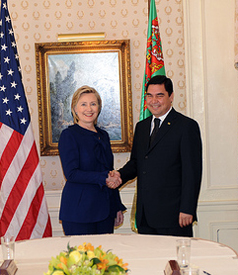 US Secretary of State Hillary Clinton with Turkmenistan's President Gurbangulu Berdimuhamedov at the Plaza Hotel in New York on September 21, 2009, at the opening of the 64th UN General Assembly. (Photo: US State Department)
US Secretary of State Hillary Clinton with Turkmenistan's President Gurbangulu Berdimuhamedov at the Plaza Hotel in New York on September 21, 2009, at the opening of the 64th UN General Assembly. (Photo: US State Department)
When you lace up your boots and head for the plane that will carry you to Afghanistan, you will be joining Secretary of State Hillary Rodham Clinton, ExxonMobil chief Rex Tillerson and Gurbangulu Berdimuhamedov in what has been described in the US Congress as "the new great game".
It is a "game" in which the US is seeking to plant itself near the heart of the energy complex of Central Asia, a region to the north and east of the Middle East that possesses important oil, natural gas and hydroelectric resources.
As you may know, Iraq has the world's fourth largest known oil reserves after Saudi Arabia, Canada and Iran. Major oil companies - ExxonMobil, Shell, BP, Chevron, and others - are competing for access to these reserves, courtesy of the US invasion in 2003 that ended Iraq's exclusion of Western firms. The US, acting on behalf of the energy companies, is also working to get access to Iraq's natural gas reserves, as will be discussed below. Permanent US bases in Iraq, although scaled back under an agreement with the Iraqi government, will give the US a credible military threat to back up its political and commercial demands in Iraq and surrounding Middle East countries.
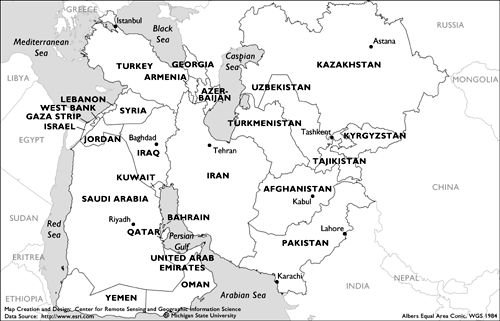
East Middle East
Less well known in the US is that Central Asia, that includes Kazakhstan, Uzebekistan, Turkmenistan, Kyrgyzstan and Tajikistan, holds substantial oil, gas and hydroelectric resources that are viewed as critical over the course of this century to the economic success of Europe, Russia, China, India and the US. For example, Turkmenistan has the fourth largest natural gas reserves after Russia, Iran and the US, and Kazakhstan may have oil reserves equal to those in Iraq. Kyrgyzstan and Tajikistan have a great potential for expanding hydroelectric power; by one estimate, Tajikistan can eventually generate nearly the same amount of hydroelectricity as India does today.
Unlike the Middle East, where the oil and gas are convenient to water transport, the petroleum products of Central Asia must be moved largely through pipelines, and, of course, the electricity must be circulated through extensive transmission lines. The key decisions for the countries of the region and for Russia, Asia, South Asia, Europe and the US involve where new pipelines and electric lines will go.
As will be discussed in more detail below, it appears likely the US wants a friendly, stable, popularly-supported government in Afghanistan in part to ensure safety of major oil and gas pipelines that could be built by US and Western firms across Afghanistan to Pakistan and India. Permanent US military bases in Afghanistan, in the heart of the Central Asian complex, would enable the US to influence governments there, calling what shots it can on pipeline and electric line routing, on energy fees and what nations and firms Central Asia's governments will favor.
Iraq and Afghanistan have one thing in common that is very appealing to the US with respect to long-term US presence in the region: Both nations have weak, barely-functioning central governments (the US destroyed Iraq's government with the invasion of 2003). This gives the opportunity for the US to create governments almost from scratch, totally dependent on the US economically, with the occupations forcing the local economies to be integrated into the US and Western economies and cultures.
The "New Great Game"
In February 1998, at a Congressional hearing of the Subcommittee on Asia and the Pacific of the House International Relations Committee, then Congressman Doug Bereuter (R-Nebraska), chair of the subcommittee, laid out a vision, some might say a grandiose vision, for the US in Central Asia.
Opening the hearing, Congressman Bereuter said:
|
"One hundred years ago, Central Asia was the arena for a great game played by Czarist Russia, Colonial Britain, Napoleon's France, and the Persian and Ottoman Empires. Allegiances meant little during this struggle for empire building, where no single empire could gain the upper hand. |
The first witness at the hearing, Robert W. Gee, then assistant secretary for policy and international affairs in the US Department of Energy, under President Bill Clinton, explained the energy significance of Central Asia to the US:
|
"To begin, you may ask why is the United States active in the (Central Asia or Caspian) region? The United States has energy security, strategic, and commercial interests in promoting Caspian region energy development. We have an interest in strengthening global energy security through diversification, and the development of these new sources of energy. Caspian export routes would diversify rather than concentrate energy supplies, while avoiding over-reliance on the Persian Gulf ... |
It is worthwhile to interrupt this testimony to make two critical points.
First, in this and other US official statements on Central Asia and Afghanistan the word "diversify" applied to export routes from Central Asia is a code word for building pipelines to Europe that do not pass through Iran or Russia and for building a pipeline or pipelines that pass through Afghanistan to serve Pakistan and India. A pipeline west to China is under construction.
Second, it is apparent that the US wants ready access to a source of petroleum products from Central Asia that will reduce its dependency on Middle Eastern oil and gas.
Resuming Mr. Gee's testimony:
|
"We also have an interest in maximizing commercial opportunities for US firms and for US and other foreign investment in the region's energy development." |
"In Everyone's Interest"
The hearing concluded with testimony by John J. Maresca, then vice president of international relations for Unocal, the only commercial witness to testify. Mr. Maresca, who would later be appointed by President George W. Bush as a special ambassador to Afghanistan, provided the subcommittee with a more detailed explanation of the energy significance of the region and the key role of Afghanistan in energy business strategy:
|
"Mr. Chairman, the Caspian region contains tremendous untapped hydrocarbon reserves. Just to give an idea of the scale, proven natural gas reserves equal more than 236 trillion cubic feet. The region's total oil reserves may well reach more than 60 billion barrels of oil. Some estimates are as high as 200 billion barrels. In 1995, the region was producing only 870,000 barrels a day. By 2010, western companies could increase production to about 4.5 million barrels a day, an increase of more than 500 percent in only 15 years. If this occurs, the region would represent about 5 percent of the world's total oil production." |
Mr. Maresca then explained that Central Asia's energy resources are "landlocked, both geographically and politically." Each of the countries in the region "faces difficult political challenges," he continued, and some have "unsettled wars and latent conflicts." A major "technical obstacle," he said, is transporting oil in the region's existing pipeline system which was constructed by Moscow, heading north and west toward Russia, with "no connections to the south and east (in the direction of the huge energy demand of India and China). While Western Europe, Central and Eastern Europe and nations formerly controlled by the Soviet Union would be "slow growth markets," he continued:
|
"Asia is a different story. It will have a rapidly increasing energy consumption need ... I should note that it is in everyone's interest that there be adequate supplies for Asia's increasing energy requirements. If Asia's energy needs are not satisfied, they will simply put pressure on all world markets, driving prices upwards everywhere." (The Asian energy demand, coming as the Iraq War was limiting oil production, was a key factor in the jump of oil prices to over $100 a barrel in 2008, devastating national economies around the world.) |
Mr. Maresca then advocated the Unocal pipeline "south from Central Asia to the Indian Ocean." The route through Afghanistan, he said, was preferable to a route through Iran because of US sanctions against Iran. Laying out specifics, he continued:
|
"Unocal foresees a pipeline which would become part of a regional system that will gather oil from the existing pipeline infrastructure in Turkmenistan, Uzebekistan, Kazakhstan and Russia. The 1,040-mile long oil pipeline would extend south through Afghanistan to an export terminal that would be constructed on the Pakistan coast. This 42-inch diameter pipeline will have a shipping capacity of one million barrels of oil per day. The estimated cost of the project, which is similar in scope to the trans-Alaska pipeline, is about $2.5 billion." |
However, the pipeline would not be built, Mr. Maresca said "until there is a single Afghan Government (rather than warring factions) ... (financing) credits are not going to be available until there is a recognized government in Afghanistan."
"I guess the top one on the agenda was Afghanistan"
On September 22, 2009, Secretary of State Clinton met at the Plaza Hotel in New York with Gurbangulu Berdimuhamedov, the president of Turkmenistan, in town for the opening of the UN General Assembly and to do business. Her meeting was part of the US courtship of Turkmenistan related directly to its reserves of oil and natural gas and the hopes of US energy companies to produce Turkmen gas and oil for Europe, South Asia and Asia.
The US is also extremely eager to have Turkmenistan's help in prosecuting the Afghanistan war. If the US and NATO succeed in creating a stable government in Afghanistan friendly to US and Western interests, Turkmenistan could benefit from trans-Afghan pipelines for oil and/or gas.
In discussing the meeting between the Turkmen president and Secretary Clinton, her Assistant Secretary for the South and Central Asia, Robert O. Blake Jr., said:
|
"In terms of the some of the big issues that we discussed today, I guess the top one on the agenda was Afghanistan. As many of you know, the Turkmen maintain a policy of what they call positive neutrality; that is that they're trying to balance all the different powers in the region - Iran, Russia, the United States - and kind of keep them in rough balance. |
Then, Mr. Blake said:
|
"Let's see. On the energy front, the Secretary said that we want to see Turkmenistan really be a leader in terms of energy security and energy supply. As you know, we have a policy of encouraging multiple pipelines [emphasis added] out of the Central Asian region. And so the Turkmen have an important role to play in that. They're part of this pipeline, the Nabucco pipeline that would bring gas from Central Asia and also possibly from Iraq up into Europe. That still is in the future. That's, I think, going to start in 2011 or so ..." |
It is worth breaking into Mr. Blake's commentary to note that the Nabucco pipeline, named after a Verdi opera that was attended by the originators of the project in 2002 immediately after they agreed to move ahead, is being supported by the US because it would take gas from Central Asia, across the Caspian Sea to Turkey and then to Europe, without passing through Russia or Iran. The pipeline project got a boost in January 2009 when Russia shut off gas to Europe that passed through Ukraine because of a pricing dispute with Ukraine. US Sen. Richard Lugar, attending a ceremony in Turkey in June 2009 for the signing of an agreement on Nabucco, spoke in answer to a reporter's question about the role of Russia in the Nabucco project, saying: " ... attacks in the future ... might not come just from aircraft or armies ... maybe if you really want to be aggressive ... just shut off the tap in the middle of winter; freeze the elderly, stop industry ... this is an existential question for our countries."
One of the concerns about Nabucco is that there will not be enough gas passing through the pipeline to justify its cost, estimated at more than $12 billion. US Ambassador Richard Morningstar, speaking at the signing ceremony in Turkey, in answer to a question about whether there would be enough gas to support the pipeline, said, "yes, I think there will be supplies, and there are potential sources of supplies in Azerbaijan and Turkmenistan and in Iraq." Senator Lugar said about the continuing failure of Iraq to pass an energy law: "if its institutions, political and economic, don't support the development of that (petroleum potential), that becomes very troubling for the country and likewise for all the other countries that might be supplied. So this is one reason why Iraq is very important to all of us, and the evolution of this government we will watch and we will help."
Returning to Assistant Secretary Blake's report on his boss' meeting with the Turkmen president:
|
"US companies are already doing a lot of business in Turkmenistan, particularly offshore, and are interested, I think, in doing more business to develop some of the onshore hydrocarbon resources there. And so the Secretary conveyed that interest. The Turkmen president said that he's going to be meeting ... with a lot of US oil companies to, again, explore what more they can do in Turkmenistan. So that's certainly a welcome development." |
Turkmen national TV reported that President Berdimuhamedov had personal meetings at the Plaza with Rex Tillerson, chairman of the board and chief executive officer of ExxonMobil; Jay Pryor, Chevron's vice president for corporate business development; and former US Secretary of State Henry Kissinger, who has long had an involvement in Central Asian energy interests.
The national TV report of Mr. Kissinger's visit spoke of a trans-Afghan pipeline: "Turkmenistan will export fuel to China and increase capacity of the gas network to Iran by late 2009, (and to) India and Pakistan through Afghanistan ..."
On September 24, 2009, the US-Turkmenistan Business Council threw a members-only dinner party for the Turkmen president at the Plaza. Members of the business council include: ExxonMobil, Chevron, ConocoPhillips, Marathon Oil, KBR (a major US military contractor and oil and gas services company) and Boeing.
It is worth noting that the web site of the US-Kazakhstan Business Association, whose members include ExxonMobil, Chevron, ConocoPhillips, General Electric, Flour Corporation, Halliburton and Lockheed-Martin, shows a map of pipelines that Kazakhstan hopes to see built, which includes a pipeline from Kazakhstan through Turkmenistan, then south through Afghanistan and into Pakistan and then to the Indian Ocean. It is interesting also that while there is commentary on other routes on the map, there is none for this route.
"Open Up Afghanistan"
Although Mr. Blake did not specifically mention a trans-Afghanistan petroleum route as one of the multiple pipelines, this route was discussed on April 16, 2009, by Richard Boucher, Mr. Blake's predecessor as assistant secretary for South and Central Asian affairs, speaking to the press on a trip to Turkmenistan:
|
"For Turkmenistan to really develop its own potential they need to develop multiple opportunities and diversified [emphasis added] routes. So every investment, every new route is good for the independence and opportunities of the country. American companies are the best in the world. They have the technologies ... |
Asked about the possibility of a trans-Afghan pipeline, he said:
|
"There may be. I mean, the Trans-Afghan project made sense at one time. I think it can ... these things can be done despite a certain level of insecurity. It certainly exists in other parts of the world. But...companies, both the Turkmen companies and other foreign companies have to calculate the investment, and the cost and return and the future price of gas, and the markets. I think at the right moment when it's economically feasible it'll be a good project." |
In answer to another question, he said the trans-Afghan route is a "longer-term opportunity, but one we're always working on to try to open up Afghanistan so that trade and ideas and energy can flow from North to South, down to the sea (which would be through Pakistan to India)."
US interest in a trans-Afghan pipeline route was also discussed in June 2009 by Meryl Burpoe, deputy director of Russian and Eurasian affairs for the US Department of Energy, in a report quoted by Eurasianet: "I know that American companies are interested in participating in the implementation of pipeline projects from Turkmenistan to Europe and Pakistan-India."
You should note that Mr. Boucher's comment about running the trans-Afghan pipelines with "a certain level of insecurity" may mean that US and NATO troops will be engaged in clearing and holding a swath of territory through Afghanistan for oil and gas pipelines, and possibly electric lines coming from Turkmenistan, Kryzygstan and Tajikstan.
"... my country," said George Krol, deputy assistant secretary of state for South and Central Asian affairs, speaking in Turkmenistan in April 2009, "is an active participant in the effort to create a transmission corridor for electricity from Central to South Asia. Getting Central Asian-generated electricity to South Asia requires progress in Afghanistan ..."
Turkmenistan has been involved in talks with Pakistan about exporting electricity to Pakistan through Iran, according to Eurasianet. It appears that the US would prefer that the electric lines pass through Afghanistan.
Disengage
I suggest that you do Internet searches to find out more about Afghanistan, Central Asia and energy. I recommend an important article by Richard W. Behan that examines, among other things, the role of oil in US decisions leading up to the 2001 invasion of Afghanistan.
In conclusion, my view is the same as that of Marjorie Cohn, president of the National Lawyers Guild, and Kathleen Gilberd, co-chair of the Guild's Military Law Task Force, who say in their new book "Rules of Disengagement" that "the US invasion of Afghanistan was as illegal as the invasion of Iraq." I believe further that the US military presence in Afghanistan serves only to postpone the time when the people of Afghanistan, Central Asia and Pakistan will achieve political and economic understandings that will bring peace to their region. The profound tragedy is that until that time, which will come inevitably, there will be an immense amount of killing, dying and suffering.
I hope that you will decline to participate in the war in Afghanistan. If you are considering this, I commend to you "Rules of Disengagement" and Dahr Jamail's "The Will to Resist."
In any case, I pray for your safety and the safety of all those whom you encounter.
COMMENTS
Killing for oil is the
Thu, 10/22/2009 - 22:01 — greg gerritt (not verified)
Makes you really wonder
Fri, 10/23/2009 - 01:11 — Rodrian Roadeye (not verified)
Yes, and CANADA was taken
Fri, 10/23/2009 - 02:57 — Anonymous (not verified)
for the 'deniers' of the
Fri, 10/23/2009 - 07:30 — Anonymous (not verified)
Why must our real foreign
Fri, 10/23/2009 - 14:51 — hark (not verified)
No it's not paranoia. Just
Sat, 10/24/2009 - 02:43 — borisjimbo (not verified)
No it's not paranoia. Just
Sat, 10/24/2009 - 02:47 — borisjimbo (not verified)
Great article, and should go
Sat, 10/24/2009 - 13:47 — David (not verified)
Spread the word on this.
Sat, 10/24/2009 - 21:32 — Anonymous (not verified)
This is no game. This is a
Sat, 10/24/2009 - 23:05 — Spike (not verified)
The civilian casualty rate
Mon, 10/26/2009 - 17:44 — Orley Allen (not verified)
These are the Pentagon War
Tue, 10/27/2009 - 10:32 — Anonymous (not verified)


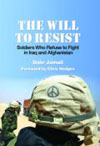
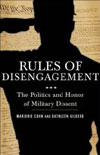
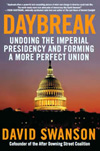
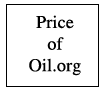
Yea ! All hail
Thu, 10/22/2009 - 19:37 — mysterioso (not verified)